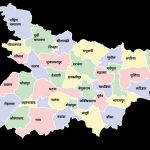India’s new framework to implement age-gating on social media

In a decisive move towards enhancing online safety, the Indian government is crafting a comprehensive risk-based framework to enforce age-gating on social media and other internet intermediaries.
According to sources, this initiative aims to limit user access to social media services strictly with parental consent.
The framework will mandate compliance from major players like Meta (Instagram, Facebook) and Google (YouTube).
In addition, it extends its reach to edtech platforms and health-related applications managing user data.
To facilitate age verification, the government is exploring various methods. These include leveraging documents stored in DigiLocker, an Aadhaar-based process, digital tokens, or implementing age checks at the app store level.
A government official emphasized that a tailored approach is essential. Stricter age-gating measures are particularly crucial for social media platforms due to the elevated risk of unwanted interactions between strangers and children.
For applications catering to users under 18, such as educational, news, accessory, and fashion-related platforms, age verification and parental consent will be mandatory.
The government official suggested using documents like school leaving certificates, board exam mark sheets, and birth certificates for basic age checks.
Some platforms may only require these details for verification, eliminating the need to store sensitive user data.
This initiative operates within the framework of the Digital Personal Data Protection Act of 2023, passed by the Indian Parliament in August.
These rules are expected to be released by the Ministry of Electronics and Information Technology by the end of November 2023.
They signify a concerted effort to align digital practices with evolving privacy and security standards.
As the digital landscape continues to evolve, India’s proactive steps in implementing age-gating underscore a commitment to safeguarding the online experiences of its younger population.
With the upcoming framework, the government aims to strike a balance between protecting children from potential risks while fostering a secure and empowering digital environment.
Image by Mohamed Hassan from Pxhere (Free for commercial use / CC0 Public Domain)
You may also like
Image Reference: https://pxhere.com/en/photo/1587349
Recent Posts
- Ozempic Teeth: Know about symptoms & preventionatients taking Ozempic should monitor their oral health carefully.
- Bihar moves to curb children’s screen addictionBihar’s proposed framework seeks balance rather than restriction alone.
- NIRDPR announces faculty, staff vacancies in HyderabadInterested candidates can apply through the official portal before 08 March 2026.
- Ozempic Teeth: Know about symptoms & prevention
What’s new at WeRIndia.com
News from 700+ sources
-
Iran-Israel conflict LIVE: Israel launches fresh strikes on Iran missile, air defence sites
-
Trumps new Iran posture explained: the events that reshaped his thinking
-
UN chief condemns U.S.-Israeli attacks on Iran during emergency Security Council meeting
-
Iranian strikes target Dubai landmarks; UAE air defences foil majority of missiles and drones
-
‘Aadu 3’ PLOT: A Pandora’s box of reincarnations
-
PV Sindhu stranded in Dubai as flights remain suspended after tensions across West Asia
-
WeRIndia – A News Aggregator
Visit werindia.com for all types of National | Business | World | Politics | Entertainment | Health related news and much more..










Leave a Reply